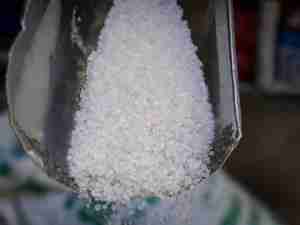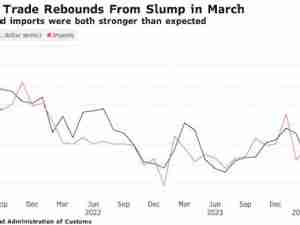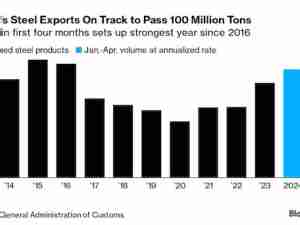Myanmar, which has been in turmoil since a military coup in February, cut its trade target for this year by 16%, citing the impact of Covid-19.
The government reduced its trade outlook to $29 billion, from $34.7 billion forecast around the start of the fiscal year in October, Ministry of Commerce spokesman Khin Maung Lwin said in an interview this week. That would be down 21% from the previous fiscal and the lowest in five years, according to ministry data.
Sanctions and other international pressure since the coup have had no significant impact on trade, according to Khin Maung Lwin. The new forecasts put exports at $14 billion and imports at $15 billion, down about 14% and 19% from the previous outlook, respectively.
“The decline in trade volume is mainly driven by Covid-19, the same challenge that other countries are facing,” he said. “Our trading activities are operating as normal. Seaborne trade is also doing well, as cargo ships and vessels operate as normal.”
Workers strikes and protests against the coup, as well as international sanctions and restrictions on cash withdrawals at home, have crippled the Southeast Asian economy. The World Bank forecasts Myanmar’s gross domestic product to shrink 10% this year, while Fitch Solutions sees a 20% contraction as “all areas of GDP by expenditure are set to collapse.”
China tops Myanmar’s list of trading partners, accounting for almost $12.2 billion, or about one-third, of the total last fiscal year, followed by Thailand, Singapore, Japan and India, according to commerce ministry data.
On Thursday, Myanmar reported 24 new Covid-19 cases, bringing its total to 143,183, including 3,216 deaths. The nation has administered about 3 million doses of AstraZeneca Plc and Sinopharm Group vaccines.
Other points from the interview:
- The country has commercial attaches in 14 countries and territories, as well as the World Trade Organization, compared with 12 last year.
- Agriculture, including sales of corn and beans to neighboring Thailand and India, made up more than $3.35 billion of exports so far this fiscal year, which started Oct. 1, $846 million higher than the previous fiscal year. The value of exports of rice, jade, natural gas and garments, which are among the country’s main exports, have fallen.
- Authorities have temporarily suspended imports of soft drinks, instant coffee and tea powders, and milk products because of food safety concerns and to protect domestic producers.








